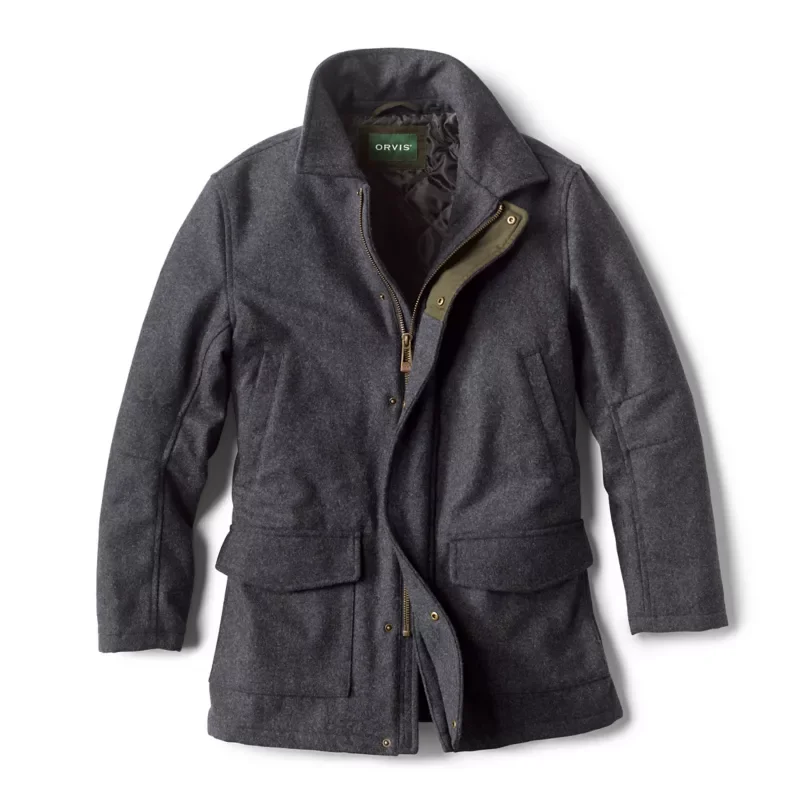Let's get one thing straight: Orvis isn't closing 36 stores because of an "...
2025-10-13 23 orvis
When the news broke that Orvis, the nearly 170-year-old institution of the American outdoors, would be closing 36 of its locations, the collective gasp from its community was almost audible. For many, an `orvis store` isn't just a place to buy gear; it's a sanctuary. It’s the quiet reverence of running your hand over a rack of waxed cotton `orvis jacket` options, the balanced heft of a Vermont-made `orvis fly rod` in your palm, the faint, pleasant smell of leather and cedar. The announcement felt like another pillar of the old world crumbling.
When I first saw the headlines, I'll admit, a part of me felt that familiar pang of nostalgia-driven loss. It’s easy to see this as a story of decline, another casualty in the retail apocalypse. But after sitting with it, I see something else entirely. This isn't a funeral. It’s a metamorphosis. We are witnessing a legacy brand perform one of the most difficult and courageous acts in modern business: choosing to save its soul by shedding its skin.
Orvis’s official statement points to an "unprecedented tariff landscape" as the catalyst. And sure, that’s the immediate pressure point, the final straw. But to focus solely on tariffs is like blaming a single wave for reshaping a coastline that’s been eroding for a decade. The real story here is a radical, and frankly brilliant, adaptation to a world that has fundamentally changed. The `orvis company` isn't just reacting; it's anticipating.
Think of a legacy brand like a giant, ancient tree. Its deep roots are its history, its brand trust, its commitment to quality—the things that make an `orvis fly fishing` experience unique. Its branches and leaves are its products: the iconic `orvis clothing`, the durable `orvis waders`, the legendary `orvis dog beds` that seem to last forever. But for decades, we’ve assumed the tree’s trunk—its physical, brick-and-mortar presence—was immutable. Orvis is making the bold claim that the trunk is just a delivery system, and a new, more efficient one is required.
It's a strategic pivot away from a centralized, high-overhead model to a distributed, resilient network. They are cutting their corporate store footprint in half to double down on their wholesale business, which already includes over 550 independent retailers. This is a move toward what you might call decentralized commerce—in simpler terms, it means embedding the brand within the communities it already serves, rather than forcing those communities to come to a specific building. The brand becomes a resource, a partner to local experts, not just a landlord of its own real estate. What does this new model look like for the customer? Does it create a more authentic, localized experience, or does it dilute the brand's carefully curated identity?

This entire move is predicated on one profound realization: the value of Orvis is not in its buildings. The value is in the promise of a quiet morning on a river, the companionship of a well-trained dog, and the confidence that comes from reliable gear. The magic isn't in the cash register; it's in the cast. This is the real paradigm shift here—the realization that the brand's value isn't in the square footage of its retail space but in the quality of its Vermont-made `orvis fly rods`, the durability of an `orvis shirt`, and the trust it has built over 170 years, a currency that can be deployed anywhere, from a shelf in Bass Pro Shops to your local mom-and-pop fly shop.
This isn't without precedent. It reminds me of the great transition from sail to steam in the 19th century. Shipping companies had these magnificent, beautiful clipper ships—the pinnacle of design, craftsmanship, and tradition. But then came the steam engine: loud, dirty, and utterly devoid of romance. The companies that clung to the romance of the sail went bankrupt. The ones that survived were those who understood that their business wasn't about sails and masts; it was about moving cargo from point A to point B. They embraced the new, more efficient technology. Orvis is ditching its beautiful, traditional sails for the engine of a modern, distributed network.
And here’s the most beautiful part: the spirit of what Orvis represents is actually booming. While the company is contracting its physical footprint, the Pennsylvania Department of Conservation and Natural Resources is reporting a 10% jump in campground reservations. People are flocking to the outdoors in record numbers. The hunger for what Orvis sells—the experience, the escape, the connection to nature—has never been stronger. The problem was never the product. It was the vessel. How many other legacy brands are clinging to an outdated vessel, unaware that the tide has already turned?
This is the kind of breakthrough that reminds me why I got into this field in the first place. It’s a human-centered solution to a complex systems problem. It’s painful, yes, especially for the employees and communities directly affected, and we can’t overlook that human cost. But it's also a powerful lesson in resilience. Orvis looked at the future and chose to skate to where the puck is going, not to where it has been.
So, no, this isn't the end of Orvis. I believe it's the beginning of its next 170 years. This is a story about a company that was brave enough to perform surgery on itself to survive. It’s a strategic retreat from the front lines of a retail war it couldn't win, in order to fortify a position of strength in a new landscape. By focusing on its core—product innovation, brand trust, and community integration through its partners—Orvis is becoming lighter, faster, and more adaptable. It’s a painful, necessary, and ultimately inspiring act of corporate evolution, and I have a feeling we’ll see it become the blueprint for countless other beloved brands trying to navigate the beautiful, chaotic wilderness of the 21st century.
Tags: orvis
Related Articles

Let's get one thing straight: Orvis isn't closing 36 stores because of an "...
2025-10-13 23 orvis